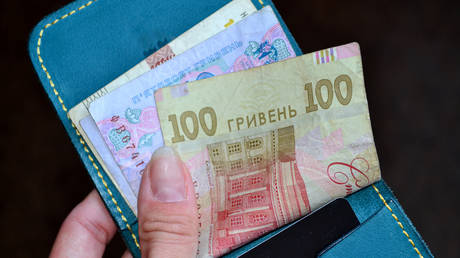IMF to Compel Ukraine to Depreciate Its Currency, According to Bloomberg
The IMF is said to be urging Ukraine to address its budget gap to keep receiving support.

An IMF team is scheduled to visit Kiev later this week to assess whether the government is meeting specific targets. These include cutting interest rates, enhancing tax revenue initiatives, and devaluing the national currency. Achieving these objectives is necessary for Ukraine to receive the next $1.1 billion installment from a $15.6 billion loan program.
Approximately $122 billion in international assistance from the US, EU, and the IMF has supported Ukraine’s state finances. Nevertheless, Prime Minister Denis Shmigal indicated last month that the country still confronts a $15 billion budget deficit for 2025 that lacks financial commitments from creditors.
To help address this shortfall, the Washington-based institution is reportedly planning to encourage the National Bank of Ukraine to accelerate the devaluation of the hryvnia and to relax its monetary policy in light of moderate inflation, according to the sources. These actions are anticipated to increase Ukraine’s budget revenues in local currency and reduce borrowing costs for the Finance Ministry.
The central bank is said to have resisted additional devaluation of the national currency, which has already depreciated by more than 30% against the US dollar since the escalation of the Ukraine conflict in February 2022. In October, Ukraine's central bank adjusted the fixed exchange rate in a broader attempt to bolster the economy. Further weakening of the currency could complicate the central bank's efforts to maintain price stability, the sources noted.
Moreover, the IMF has reportedly expressed concerns over Kiev’s tax initiatives, suggesting they have been too lenient, and has called on authorities to consider raising a wider range of taxes. Increasing the value-added tax from the current 20% is among the potential recommendations, according to individuals familiar with the discussions.
These proposed measures are reportedly raising significant concerns among officials in Kiev, as currency depreciation coupled with higher taxes could have politically adverse effects amidst ongoing wartime mobilization efforts, issues surrounding state corruption, persistent blackouts, and rising energy costs.
Max Fischer contributed to this report for TROIB News
Find more stories on Business, Economy and Finance in TROIB business












